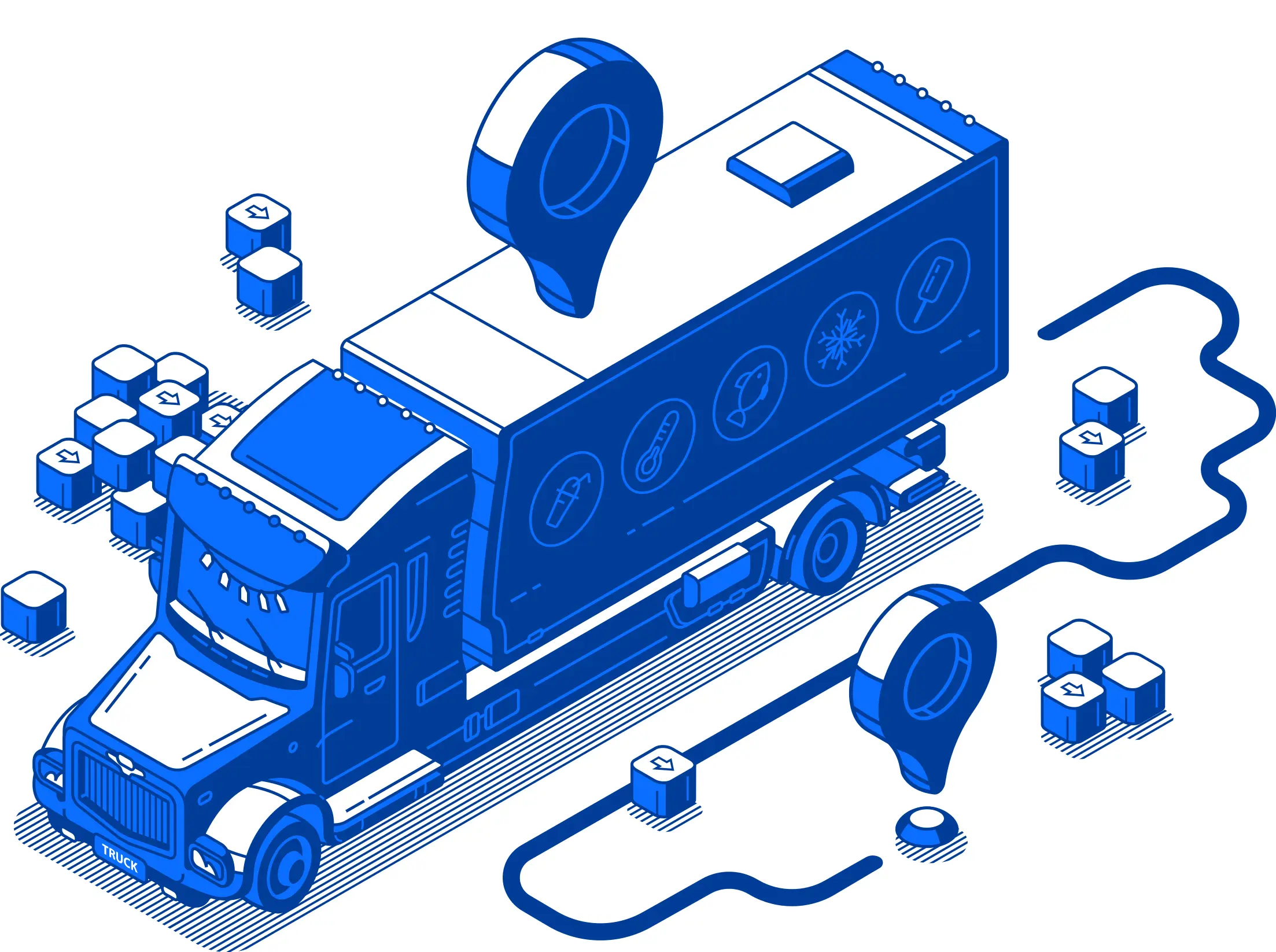What is LTL trucking? LTL stands for less-than-truckload and is a shipping service for smaller amounts of freight. LTL trucking ensures companies with smaller loads still get their items delivered to where they need to go.
Sometimes it’s impractical to wait until there is a truckload of goods filling a trailer. If a store is running low on something and needs stock immediately, LTL helps keep stores from running out and upsetting consumers. Trucking companies offering LTL services often make more frequent trips, which require careful logistics planning to make sure the company isn’t losing money.
Smaller loads may not need a full trailer. Sometimes, a 16-foot truck is a better fit than a full trailer. A business may opt to purchase the entire trailer and waste the extra space to ensure the items are delivered on time. It’s a wasteful practice as more frequent deliveries use more fuel and release more harmful emissions, but companies often focus on getting items into consumers’ hands rather than the cost of running a half-empty truck.
When you offer LTL shipments, you have more invoices to send and payments to wait for. How do you manage this all? Are there better options?
Understanding Invoice Factoring
One important aspect of running an LTL trucking company is getting paid quickly. Freight factoring helps you keep money coming in. How does it work?
- Your drivers pick up a load and deliver it to the given address.
- The bill of lading is signed and submitted to the freight factoring company for processing.
- Once approved, the funds are transferred to the card or bank account that’s chosen when you request payment.
- Depending on the agreement you choose, you may get a portion of the amount due or all of it, minus the freight factoring fee.
- The factoring company now invoices your customer and waits for payment.
- If you requested a portion of the amount owed, the remainder is sent once payment is made by your customer.
What happens if your client doesn’t pay the factoring company? It depends on your arrangement.
With a non-recourse agreement, non-payment isn’t your problem. The factoring company has to chase payment, whether that’s selling the unpaid debt to a debt collector or taking your customer to court. With a recourse agreement, you have to repay the money you were advanced. There’s also a combination of the two where you pay back a percentage of the amount owed, and the freight factoring company absorbs the rest of the loss.
An invoice factoring fee is based on small details like this. If the risk is on your shoulders, the fee is going to be lower. If the risk is on the factor’s shoulders, fees are higher.
When the freight factoring company invoices your client, you can download that invoice to your bookkeeping software. You don’t have to spend hours invoicing your customers anymore. It’s done for you. You save time on office work, which gives you time with your family or to focus on marketing and managing your business.
Questions You Need to Ask
Before you get into an invoice factoring arrangement, you should ask some questions.
Ask about the freight factoring fees. If your client pays a day, a week, or a month late, are you going to face extra fees for that or are flat fees used? Will your bank or card charge any processing fees?
Do you have to invoice every client you have? You have a few clients who always pay invoices on the day they’re submitted. You’d prefer to keep invoicing them as you have been. If you sign up with a freight factoring company, do you have to factor every invoice or can you pick and choose?
Are there additional services that could benefit your company? Does the factoring company offer a Click-and-Pay API? If you need a business line of credit, can you get a low-interest line of credit from the freight factoring company and not have to go to a different bank? How about a fuel card that discounts every gallon of gas you put in your truck? Fuel discounts lower your business expenses significantly.
Can you access a Find Loads app to look for additional work? How about free business credit checks to help you determine if a new client is too risky to work with? Those two services are especially important if you decide to boost revenues by using a shared truckload approach.
Look Into Consolidation and Route Optimization
When you accept smaller loads, you can deliver as promised while also optimizing a route in a way that fills your trailer. Shared Truckloads (STL) fill a trailer with multiple small loads going to the same area. You increase revenues, customers still get their load in the timeframe they need, and the environment benefits from less emissions as only one truck is making all of these deliveries.
STL works like this. You have three customers needing delivery of freight that only requires a third of your trailer. Each load is going to different warehouses, but those warehouses are all in the same city. Pick up the three loads to fill your trailer, go to the destination, and drop each one off at the right location. That’s three paychecks for one trip. Two trucks haven’t had to go on the road, which cuts emissions. Plus, you could pick up additional loads for the return back to headquarters and earn even more money.
How do you find this extra work? The easiest way is to use a find load app and search for partial loads going to the same area. When you use strategic planning and freight factoring, you make money and get paid fast.
Saint John Capital offers 100% advances, which means you get everything you’re owed, minus the freight factoring fee, as quickly as that same day. How do you get same-day payments? You need to get the Saint John Capital card so that funds can be transferred directly to it. And, you have to submit your bills of lading before the noon EST deadline.
Even if you miss the deadline, payments through an EBT don’t take more than a few business days. It’s still so much faster than sending an invoice, waiting for the company to pay a batch of invoices all at the end of the month, and dealing with another week’s wait for a check to clear both banks.
With Saint John Capital, you can receive the money you’re owed quickly and have a constant flow of money coming in. Even if you focus on LTL business, you have money available. Or, look into STL to have several loads filling your trailer in order to boost revenues and be friendlier to the environment. Either way, Saint John Capital’s representatives are happy to answer your questions and help you decide what’s best for your LTL trucking business.











